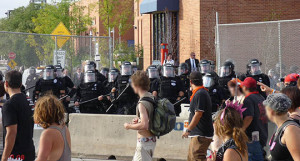Redigert av Christine Jacobsen, Synnøve Bendixsen, Karl Harald Søvig
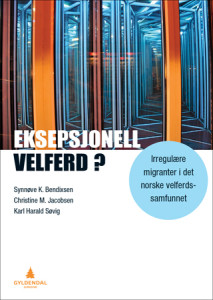 Irregulære immigranter har på noen områder full tilgang til velferdsytelser, men på mange områder er tilgangen svært begrenset enten i form av rettsregler eller andre barrierer. Denne antologien undersøker forholdet mellom rettslig rammeverk, institusjonell praksis og hvordan irregulære migranter selv erfarer sin situasjon.
Irregulære immigranter har på noen områder full tilgang til velferdsytelser, men på mange områder er tilgangen svært begrenset enten i form av rettsregler eller andre barrierer. Denne antologien undersøker forholdet mellom rettslig rammeverk, institusjonell praksis og hvordan irregulære migranter selv erfarer sin situasjon. Med en unik kombinasjon av juridisk og antropologisk blikk, går boken regelverket nærmere i sømmene, drøfter gatebyråkraters utfordringer og hverdagslivet til irregulære migranter og deres barn.
Hvilke regelverk får konsekvenser for irregulære migranters levevilkår? Hvordan blir dette regelverket forstått og etterfulgt av gatebyråkrater? Og hvordan blir hverdagslivet til irregulære migranter og deres barn påvirket av regelverket og dets fortolkning?
Denne boken er aktuell for velferdsprofesjoner som møter irregulære migranter som en del av sin yrkesutøvelse. Både leger, sykepleiere, helsesekretærer, lærere, helsesøstre, skolerådgivere, sosialarbeidere, sosionomer og barnevernspedagoger vil ha god nytte av Eksepsjonell velferd? Irregulære migranter i det norske velferdssamfunnet. Boken retter seg også mot frivillige organisasjoner som jobber med ulike aspekter ved migranters situasjon i Norge og andre som er engasjert i temaet.
The Play of Colors: Staging Multiculturalism in Norway
Fargespill (lit. “play of colors”) is a series of musical performances in Norway that have been staged from 2004 to the present. Each performance consists of a sequence of musical and dance numbers performed by children from different minority and immigrant groups, many of whom came to Norway as refugees, together with white Norwegian children. The songs and choreographies represent the home countries of the children who perform, and have included for example music and dance from Somalia, Myanmar (Burma), Rwanda, Kurdistan, and Eritrea, combined together with Norwegian folk music in often elaborate production numbers with colorful costumes and complex musical arrangements. While the specific musical numbers used and cast members change from performance to performance, the concept remains the same – a representation of ethnic, racial and cultural diversity in Norway staged through the voices and bodies of the children on stage. From its beginnings as an cultural initiative in the city of Bergen, Fargespill has gained increasing national attention within Norway, leading to performances in other cities such as Oslo and Trondheim.
Using as a starting point recent theorizations of multiculturalism and critical discussions of race and racism in Norway, this paper analyzes the Fargespill performances. The paper also uses Deleuze and Guattari’s twin concepts of majoritarian/minoritarian to interpret Fargespill’s representations. While the public face of Fargespill is that of children of various immigrant and minority groups, behind the scenes the performances are actually conceptualized, scripted, and extensively stage-managed primarily by majority (white) Norwegian adult arts professionals. The paper especially explores the question of whether the representations of Fargespill constitute a positive contribution to creating a climate for embracing difference in Norway, or whether Fargespill is better understood as a reassuring story white Norwegians tell themselves about multicultural Norway that, at best, naively sidesteps ongoing problems of racism and intolerance toward minorities and immigrants endemic in contemporary Norwegian society. Fargespill’s use of the performing bodies of refugee children to tell its story about a supposed Norwegian multicultural utopia can be seen as especially problematic in the context of the Norwegian government’s recent practices regarding the forced return of long-dwelling child asylum seekers to their country of origin.
 Thomas Solomon is Professor in the Grieg Academy-Department of Music at the University of Bergen. He has previously taught at New York University, University of Minnesota, and Istanbul Technical University. He has done field research in highland Bolivia on musical imaginations of ecology, place and identity, and in Istanbul on place and identity in Turkish hip-hop. His publications include articles in the journals Ethnomusicology, Popular Music, European Journal of Cultural Studies, and Yearbook for Traditional Music, as well numerous chapters in edited volumes on topics such as music and indigeneity in highland Bolivia, orientalism and gender in Turkish popular music, music and postcolonialism, and music and race in American cartoons. He is also editor of Music and Identity in Norway and Beyond: Essays Commemorating Edvard Grieg the Humanist (2011) and African Musics in Context: Institutions, Culture, Identity (2015), and co-editor of Ethnomusicology in East Africa: Perspectives from Uganda and Beyond (2012).
Thomas Solomon is Professor in the Grieg Academy-Department of Music at the University of Bergen. He has previously taught at New York University, University of Minnesota, and Istanbul Technical University. He has done field research in highland Bolivia on musical imaginations of ecology, place and identity, and in Istanbul on place and identity in Turkish hip-hop. His publications include articles in the journals Ethnomusicology, Popular Music, European Journal of Cultural Studies, and Yearbook for Traditional Music, as well numerous chapters in edited volumes on topics such as music and indigeneity in highland Bolivia, orientalism and gender in Turkish popular music, music and postcolonialism, and music and race in American cartoons. He is also editor of Music and Identity in Norway and Beyond: Essays Commemorating Edvard Grieg the Humanist (2011) and African Musics in Context: Institutions, Culture, Identity (2015), and co-editor of Ethnomusicology in East Africa: Perspectives from Uganda and Beyond (2012).
A light lunch, coffe and tea will be served.
Download poster here: Thomas Solomon on the play of colors (pdf)
Political protest is an increasingly frequent occurrence in urban public space. During protests, urban space transforms according to special regulatory circumstances abrogating normal laws. Territorial control is central to securitization of urban space. Protest is disruptive of urban spatial relations, so law enforcement considers it a threat conflated with crime and terrorism. The means to achieve spatial control vary by mode of protest policing, which are products of dominant socioeconomic models of society, influenced by local policing culture and historical context. Spatial tactics of control are outgrowths of the militarization of policing and the securitization of urban space. Protest policing innovation under neoliberalism has led to new modes of tactical spatial engagement, working to strategically nullify political dissent through manipulation of urban space. This has significant consequences for urban design and emergent urban form, particularly through the professional practice of CPTED, or crime prevention through environmental design.
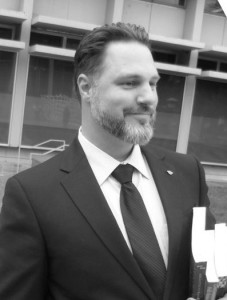 Hans Sagan holds a Ph.D. in Architecture from the University of California – Berkeley. His recent work investigates the role of urban space in protest policing. He teaches architecture and urbanism at the Academy of Art University in San Francisco.
Hans Sagan holds a Ph.D. in Architecture from the University of California – Berkeley. His recent work investigates the role of urban space in protest policing. He teaches architecture and urbanism at the Academy of Art University in San Francisco.
Susanne Wessendorf: Pioneer migrants in a super-diverse context
Urban areas in Europe and beyond have seen significant changes in patterns of immigration, leading to profound diversification. This diversification is characterized by the multiplication of people of different national origins, but also differentiations regarding migration histories, religions, educational backgrounds, legal statuses and socio-economic backgrounds. This ‘diversification of diversity’ is now commonly described as ‘super-diversity’. Despite an increasing number of studies looking at how people live together in such super-diverse contexts, little is known about new patterns of immigration into such contexts. What are the newly emerging countries of origin which add to the diversification of already super-diverse areas? Where do recent migrants from unusual source countries, who cannot draw on already existing migrant or ethnic ‘communities’, find support? And what kinds of social networks do they form? This paper discusses pathways of settlement among recently arrived migrants from non-traditional countries of origin in the London Borough of Hackney. Drawing on earlier migration literature and the notion of ‘pioneer migration’, the paper addresses the challenges of analysing increasingly fragmented migration stories and pathways of settlement in super-diverse contexts.
Thomas Hylland Eriksen: The tension between superdiversity and cultural reproduction
From a bird’s eye perspective, Alna borough in eastern Oslo definitely looks superdiverse. Scores of languages are spoken in its population of 40,000, and its inhabitants come from about as many countries. Yet at the local level, social and cultural reproduction takes place to a great extent at the ethnic or community level. As one of our informants says, ‘I sometimes feel as though I am in Pakistan’. Had it not been for the strong presence of the Norwegian state, the suburb would have resembled the plural societies described in the mid-20th century by Furnivall and Smith, where ethnic groups, like pearls on a necklace, lead parallel lives but meet in the marketplace. How comprehensive is the influence of the state; in what ways does diversity in public affect the private sphere, and what are the main elements in the cultural reproduction of minority groups?
Echoes of race in Amsterdam
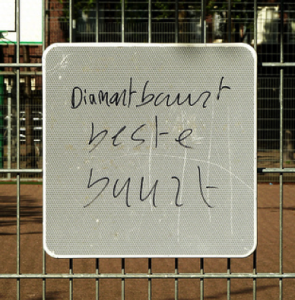 In this talk, I will discuss how racialized discourses on multicultural failure and the trouble with the children of migrants is taken up and contested in multicultural Amsterdam. Like in other Western European countries, multiculturalism backlash discourses have dominated public debates in the Netherlands since the 1990s. I ask how people who are framed as part of the problem engage the moral imperatives of such backlash discourses and the anxieties they broadcast. Amsterdam’s Diamantbuurt provides a good vantage point for such an exploration since the neighbourhoods’ unruly Moroccan-Dutch young men have played an important role in Dutch backlash discourses. How do Moroccan-Dutch Diamantbuurt residents, who are closely identified with these iconic bad guys, negotiate the dominant narrative regarding their neighbourhood? This article demonstrates that for these residents, the anxieties articulated in backlash discourses become the grounds for an anxious grappling with abjectness and identification.
In this talk, I will discuss how racialized discourses on multicultural failure and the trouble with the children of migrants is taken up and contested in multicultural Amsterdam. Like in other Western European countries, multiculturalism backlash discourses have dominated public debates in the Netherlands since the 1990s. I ask how people who are framed as part of the problem engage the moral imperatives of such backlash discourses and the anxieties they broadcast. Amsterdam’s Diamantbuurt provides a good vantage point for such an exploration since the neighbourhoods’ unruly Moroccan-Dutch young men have played an important role in Dutch backlash discourses. How do Moroccan-Dutch Diamantbuurt residents, who are closely identified with these iconic bad guys, negotiate the dominant narrative regarding their neighbourhood? This article demonstrates that for these residents, the anxieties articulated in backlash discourses become the grounds for an anxious grappling with abjectness and identification.
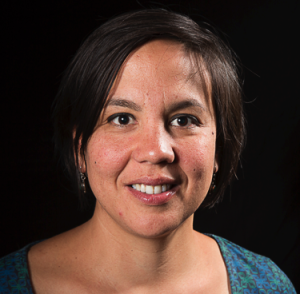 Anouk de Koning is assistant professor in Anthropology and Development Studies, Radboud University, Nijmegen, the Netherlands. She is the author of Global Dreams: Class, Gender and Public Space in Cosmopolitan Cairo (AUC Press, 2009) and, with Rivke Jaffe, Introducing Urban Anthropology (Routledge, 2016).
Anouk de Koning is assistant professor in Anthropology and Development Studies, Radboud University, Nijmegen, the Netherlands. She is the author of Global Dreams: Class, Gender and Public Space in Cosmopolitan Cairo (AUC Press, 2009) and, with Rivke Jaffe, Introducing Urban Anthropology (Routledge, 2016).
A light lunch will be served
CANCELED More infoermation about eventual repacements will be available sook
Child welfare services in Norway are currently internationally debated. A key question relates to multicultural challenges, whether services are sensitive to cultural differences and ethnic minority families specific challenges. As part of a larger research project, we interviewed parents with refugee backgrounds about their experiences of contact with child welfare services in Norway. Despite parents describing both positive and negative experiences, and trust as well as distrust, we found that fear of the child welfare services was a central theme. The paper will focus on the representations of the child welfare services that fear was related to. The theoretical framework will be Axel Honneth and Nancy Fraser’s understandings of recognition and social justice.
Marte Kn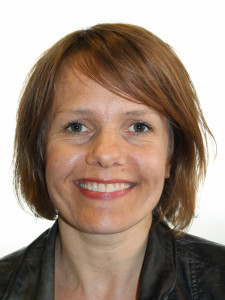 ag Fylkesnes is a PhD student, working at the HEMIL-center UiB. In her thesis she discusses multicultural challenges in relation to the Norwegian child welfare system, from the perspective of service users.
ag Fylkesnes is a PhD student, working at the HEMIL-center UiB. In her thesis she discusses multicultural challenges in relation to the Norwegian child welfare system, from the perspective of service users.
Predatory security: Reshaping the city and the state in Mozambique
Notions and practices of security colonise both state and urban contexts across Africa. Arguably, these notions and practices are also integral to wider global political formations where urban formations in Africa are often cast as pre-figuring the shape of future global cities more generally. Based on fieldworks in the Mozambican cities of Maputo and Chimoio, this paper sees security there as related to violent crime and capital accumulation in ways that undermine policy-oriented representations of security provision as solely undertaken by state police supplemented by neoliberal assemblages of security firms. Rather, and more specifically, the paper shows how security is not only subjected to a spatialized logic of race and social control but also renders violence – in all its forms – central to its exercise and cosmologies. This point will be emphasised by analysing how various forms of policing must be understood beyond the security-development nexus. These forms of policing increasingly involve a gradual emergence of what I call ‘predatory security’ that is central to violent modes of capital accumulation that shape African urban landscapes as well as define the contours of the state. The paper suggests that as a configuration of accumulative violence such predatory security has consequences for how we should approach calls for rights to the city as well as the state in urban African orders and beyond.
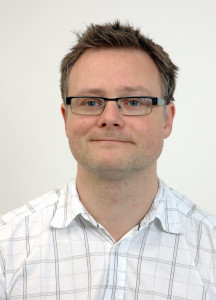 Bjørn Enge Bertelsen, associate professor, Department of Social Anthropology, University of Bergen, has researched issues such as state formation, violence, poverty and rural-urban connections in Mozambique since 1998. Bertelsen has published extensively internationally and is publishing the monograph Violent Becomings: State Formation, Culture and Power in Mozambique (Berghahn Books, 2016) and has co-edited the anthologies Crisis of the State: War and Social Upheaval (with Bruce Kapferer, Berghahn Books, [2009] 2012) and Navigating Colonial Orders: Norwegian Entrepreneurship in Africa and Oceania, ca. 1850 to 1950 (with Kirsten Alsaker Kjerland, Berghahn Books, 2015).
Bjørn Enge Bertelsen, associate professor, Department of Social Anthropology, University of Bergen, has researched issues such as state formation, violence, poverty and rural-urban connections in Mozambique since 1998. Bertelsen has published extensively internationally and is publishing the monograph Violent Becomings: State Formation, Culture and Power in Mozambique (Berghahn Books, 2016) and has co-edited the anthologies Crisis of the State: War and Social Upheaval (with Bruce Kapferer, Berghahn Books, [2009] 2012) and Navigating Colonial Orders: Norwegian Entrepreneurship in Africa and Oceania, ca. 1850 to 1950 (with Kirsten Alsaker Kjerland, Berghahn Books, 2015).
The populist radical right has emerged as the spearhead of a larger renationalization process directed against positions of global and European integration. Based on anthropological fieldwork in the postindustrial towns of Doncaster (South Yorkshire, UK) and the Hungarian town of Ózd in 2015, the paper examines the various historical, material and socio-economic factors in the rise of Ukip (United Kindom Independence Party) and the extreme right-wing Jobbik (Movement for a Better Future).
In their politics of fear, minorities and migrants are marked as posing cultural-religious threats to communal harmony and the nation-state. Through participant observation and interviews with Ukip and Jobbik politicians and supporters, the paper examines how knowledge about ‘threatening others’ is produced, circulated and contested.
 Dr. Cathrine Thorleifsson holds a PhD in Social Anthropology from the London School of Economics and Political Science (2012). Her chief theoretical interests lie in anthropological approaches to the study of nationalism, migration, borders and xenophobia.
Dr. Cathrine Thorleifsson holds a PhD in Social Anthropology from the London School of Economics and Political Science (2012). Her chief theoretical interests lie in anthropological approaches to the study of nationalism, migration, borders and xenophobia.
Welcome! A light lunch will be served.
About the Seminar series:
Migration responses
Debating the current refugee crisis in Europe
The IMER Bergen Seminar series for the spring of 2016 will discuss a wide range of responses in the wake of the current migration crisis. How can the theoretical and empirical research currently being conducted on migration, ethnic relations, peace and conflict contribute to understanding the multi-faceted landscape of politics, boundaries and everyday lives of the refugee crisis?
Kicking off a new semester with IMER lunch seminars, our first seminar this year is building on exciting fieldwork from Bergen. Hilde Danielsen from Uni Research Rokkansenteret is giving a presentation about the symbolic value of birthday parties in contemporary Norway.
Danielsen argues that birthday celebrations have become more than a private family matter, and are increasingly seen as a socially charged question in Norwegian society. Many parents with and without migration background, as well as teachers and other actors, claim that birthday parties have the potential to create social inclusion. They are especially concerned that children with migrant background should celebrate and attend. Celebrating birthdays has seemingly become one of the litmus tests of whether an immigrant individual or an immigrant group is integrated into Norwegian society.
Note the place: Lauritz Meltzers hus (SV-bygget), room 212.
As usual, a light lunch will be served. All are welcome!

